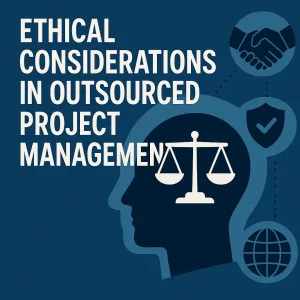Introduction
Project management is a critical discipline that involves planning, executing, and overseeing projects to ensure they are completed on time, within scope, and on budget. It plays a vital role in various industries, from construction to technology, as it helps organizations achieve their strategic objectives efficiently. As businesses increasingly rely on skilled project managers to navigate complex projects, the demand for professionals in this field continues to grow.
For students and recent graduates aspiring to enter the project management arena, a common dilemma arises: should they pursue internships or seek direct entry-level jobs? Both paths offer unique advantages and challenges, making it essential to weigh the options carefully. Internships often provide hands-on experience, networking opportunities, and a chance to learn from seasoned professionals, while entry-level jobs may offer immediate employment and a more stable income.
This blog aims to analyze the benefits of internships versus direct employment in project management, helping aspiring project managers make informed decisions about their career paths. By exploring the pros and cons of each option, we will provide insights that can guide students and recent graduates in their quest to break into the project management field effectively.
Understanding Project Management Roles
Various entry-level positions serve as stepping stones for students and recent graduates aiming to establish their careers. Understanding these roles, along with the skills and qualifications required, is crucial for making informed decisions about internships versus direct employment.
Overview of Common Project Management Roles
- Project Coordinator: Often considered an entry-level position, project coordinators assist project managers in planning and executing projects. They are responsible for maintaining project documentation, scheduling meetings, and ensuring that project milestones are met. This role is pivotal in facilitating communication among team members and stakeholders.
- Assistant Project Manager: This role typically involves supporting a project manager in overseeing project execution. Assistant project managers may handle specific tasks such as budget tracking, resource allocation, and risk assessment. They often have more responsibilities than project coordinators and may be involved in decision-making processes.
- Project Administrator: Project administrators focus on administrative tasks related to project management. They manage project files, assist in preparing reports, and ensure compliance with project standards. This role is essential for maintaining organization and efficiency within project teams.
Skills and Qualifications Required for These Roles
To succeed in entry-level project management positions, candidates should possess a blend of technical and soft skills:
- Organizational Skills: The ability to manage multiple tasks and prioritize effectively is crucial in project management roles, where deadlines are often tight and resources limited.
- Communication Skills: Clear and concise communication is vital for collaborating with team members and stakeholders. Project managers must convey information effectively to ensure everyone is aligned on project goals.
- Problem-Solving Skills: The capacity to identify issues and develop solutions is essential, as project managers frequently encounter challenges that require quick thinking and adaptability.
- Technical Proficiency: Familiarity with project management software (e.g., Microsoft Project, Trello, Asana) and methodologies (e.g., Agile, Waterfall) can enhance a candidate’s employability.
- Educational Background: While a degree in project management or a related field is beneficial, many employers also value relevant certifications (e.g., CAPM, PMP) and practical experience gained through internships or volunteer work.
The Job Market Landscape for Project Management Positions
The job market for project management roles is robust, with a growing demand for skilled professionals across various industries. Key insights include:
- Diverse Opportunities: Project management skills are applicable in sectors such as IT, construction, healthcare, and marketing, providing a wide range of job opportunities for graduates.
- Increasing Demand: According to industry reports, the need for project managers is expected to rise significantly, driven by the complexity of projects and the necessity for effective management to achieve organizational goals.
- Competitive Landscape: While the demand is high, competition for entry-level positions can be intense. Candidates with internships or relevant experience often have an advantage over those without practical exposure.
In conclusion, understanding the various roles within project management, the skills required, and the current job market landscape can help students and recent graduates make informed decisions about pursuing internships or direct employment. Each path offers unique benefits, and the choice ultimately depends on individual career goals and circumstances.
The Value of Internships
Internships play a crucial role in helping students and recent graduates break into the field of project management. They offer a unique set of advantages that can significantly enhance one’s career prospects. Here are some key benefits of pursuing internships in project management:
- Real-World Experience and Practical Skills Acquisition: Internships provide hands-on experience that is invaluable for understanding the complexities of project management. They allow interns to engage with real projects, helping them to grasp the risks and issues involved throughout the project life cycle. This practical exposure is essential for developing the skills necessary to manage projects effectively in the future [2][8].
- Networking Opportunities with Industry Professionals: Engaging in an internship allows individuals to connect with professionals in the field. These connections can lead to mentorship opportunities, recommendations, and insights into the industry that are not easily accessible through academic channels. Building a professional network during an internship can be instrumental in securing future job opportunities [5][12].
- Possibility of Transitioning to a Full-Time Position Post-Internship: Many companies view internships as a way to identify and cultivate talent for future employment. Interns who demonstrate their capabilities and fit within the company culture may be offered full-time positions upon completion of their internship. This pathway can be a strategic way to secure a job in project management without the need for extensive prior experience [3][11].
- Flexibility and Lower Entry Barriers Compared to Direct Employment: Internships often have fewer requirements than full-time positions, making them more accessible for students and recent graduates. They typically do not require extensive experience, allowing individuals to enter the field and start building their resumes. This flexibility can be particularly beneficial for those who are still completing their education or who may not yet have a clear career path [1][14].
The Advantages of Entry-Level Jobs
Securing an entry-level project management job can be a strategic move for students and recent graduates looking to establish a career in this dynamic field. Here are some key benefits of pursuing direct employment over internships:
- Stability and Consistent Income: One of the most significant advantages of an entry-level job is the financial stability it provides. Unlike internships, which often come with lower pay or stipends, entry-level positions typically offer a regular salary. This consistent income can alleviate financial stress and allow individuals to focus on their professional development without the burden of financial uncertainty [3].
- Immediate Exposure to Project Management Responsibilities: Entry-level jobs often involve hands-on responsibilities that allow new employees to engage directly with project management tasks. This immediate exposure helps in understanding the intricacies of project execution, from planning to delivery, and provides a realistic view of the challenges faced throughout the project life cycle [6]. Such experience is invaluable for building a solid foundation in project management.
- Potential for Faster Career Advancement: Committing to a full-time role can lead to quicker career progression compared to internships. Entry-level positions often serve as a launching pad for promotions and increased responsibilities, as employers are more likely to invest in the development of full-time employees. This can lead to opportunities for advancement within the organization, allowing individuals to climb the career ladder more rapidly [14].
- Access to Employee Benefits and Company Resources: Full-time employees typically enjoy a range of benefits that interns may not receive, such as health insurance, retirement plans, and paid time off. Additionally, being part of a company provides access to resources like training programs, mentorship opportunities, and networking events, which can further enhance professional growth and development [10].
Comparative Analysis: Internships vs. Entry-Level Jobs
When it comes to breaking into project management, students and recent graduates often face the dilemma of choosing between internships and entry-level jobs. Both paths offer unique advantages and challenges, and understanding these can help you make an informed decision about your career trajectory.
Skill Development Opportunities
- Internships: These positions typically provide hands-on experience in a real-world setting, allowing interns to engage with various aspects of project management. Interns often work on short-term projects that require entry-level skills, which can help them gain practical knowledge and a realistic view of project risks and issues throughout the project life cycle [2][3]. This exposure can be invaluable for understanding the complexities of project management.
- Entry-Level Jobs: While these positions may offer a more structured environment, they often require employees to excel in multiple roles and responsibilities. This can lead to a broader skill set as employees navigate various tasks and challenges [13]. However, the learning curve may be steeper, as entry-level roles can sometimes involve more routine tasks that do not directly contribute to skill enhancement.
Networking Potential and Professional Connections
- Internships: One of the significant benefits of internships is the opportunity to build a professional network. Interns can connect with industry professionals, mentors, and peers, which can lead to future job opportunities and collaborations [4][10]. The relationships formed during an internship can be crucial for career advancement.
- Entry-Level Jobs: While entry-level positions also provide networking opportunities, they may not be as extensive as those found in internships. However, working in a full-time role allows for deeper integration into the company culture and the chance to build long-term relationships with colleagues and supervisors [12]. These connections can be beneficial for career growth and mentorship.
Financial Considerations: Pay Rates and Benefits
- Internships: Generally, internships may offer lower pay or even be unpaid, which can be a significant drawback for many students and recent graduates [13]. However, some internships do provide competitive pay, which can be an added incentive while gaining experience [7]. It’s essential to weigh the financial implications against the potential learning and networking benefits.
- Entry-Level Jobs: These positions typically promise a fixed monthly salary and employee benefits, such as medical coverage, travel allowances, and retirement plans [12][15]. This financial stability can be crucial for recent graduates who are looking to establish themselves in the workforce. The assurance of a steady income can also allow for greater focus on skill development and career progression.
Long-Term Career Impact and Growth Potential
- Internships: While internships can provide valuable experience and networking opportunities, they may not always lead directly to full-time employment. However, they can significantly enhance a resume and make candidates more attractive to potential employers [10][11]. The skills and connections gained during an internship can pave the way for future job opportunities in project management.
- Entry-Level Jobs: These roles often serve as a stepping stone to higher positions within a company. Employees in entry-level jobs may have clearer pathways for advancement, as they are already integrated into the organization and familiar with its processes [12][15]. This can lead to quicker promotions and increased responsibilities, ultimately contributing to long-term career growth.
Which Path is Right for You?
When deciding between pursuing an internship or applying for an entry-level job in project management, it’s essential to consider several factors that align with your career goals, financial situation, and personal preferences. Here are some key points to help you assess your circumstances and make an informed decision:
Questions to Consider
- Career Goals: Reflect on your long-term aspirations in project management. Are you looking to specialize in a particular area, or do you want a broad understanding of the field? Internships often provide exposure to various aspects of project management, which can be beneficial if you’re still exploring your interests. Conversely, an entry-level job may allow you to dive deeper into a specific role more quickly.
- Financial Situation: Internships are frequently unpaid or offer lower compensation compared to entry-level jobs. If your financial situation allows for it, an internship can be a valuable investment in your future, providing you with hands-on experience and networking opportunities. However, if you need immediate income, an entry-level position might be the better choice.
- Personal Preferences: Consider your learning style and work preferences. Internships often come with a more flexible environment, allowing for learning and exploration, while entry-level jobs may require a more structured approach with defined responsibilities. Think about which setting you thrive in and how that aligns with your personality.
Aligning Choices with Career Aspirations
It’s crucial to align your choice with your individual career aspirations. Internships can serve as a stepping stone, offering practical experience and the chance to build a professional network. They can also enhance your resume, making you a more attractive candidate for future positions. On the other hand, securing an entry-level job can provide immediate experience and a salary, which may be necessary for your current situation.
Real-Life Testimonials
- Internship Experience: One recent graduate shared, “I took an internship during my final year, and it was the best decision I made. I learned so much about project management processes and made connections that helped me land my first job after graduation.”
- Entry-Level Job Experience: Another student noted, “I went straight into an entry-level position because I needed to support myself financially. While I didn’t have the internship experience, I quickly learned on the job and was able to advance within the company.”
Tips for Securing Internships and Entry-Level Jobs
Breaking into project management can be a rewarding yet challenging endeavor for students and recent graduates. Understanding the differences between internships and entry-level jobs, as well as the strategies to secure them, is crucial. Here are some actionable tips to help you navigate this path effectively.
Resume and Cover Letter Tips
- Tailor Your Application: Customize your resume and cover letter to highlight skills that are relevant to the specific job description. Emphasize any coursework, projects, or volunteer experiences that demonstrate your understanding of project management principles [3][5].
- Showcase Relevant Skills: If your resume lacks extensive experience, focus on showcasing your motivation, adaptability, and eagerness to learn. Highlight pertinent coursework, internships, or volunteer work that aligns with project management [5].
- Use Action Verbs: When describing your experiences, use strong action verbs to convey your contributions and achievements effectively. This can help your application stand out to hiring managers.
Networking Strategies
- Leverage LinkedIn: Create a professional LinkedIn profile and connect with industry professionals. Engage with content related to project management and join relevant groups to expand your network [9].
- Professional Associations: Consider joining professional associations related to project management, such as the Project Management Institute (PMI). These organizations often provide networking opportunities, resources, and job boards specifically for aspiring project managers [6].
- Informational Interviews: Reach out to professionals in the field for informational interviews. This can provide insights into the industry and potentially lead to internship or job opportunities.
Importance of Certifications and Ongoing Education
- Pursue Relevant Certifications: Obtaining certifications such as the Certified Associate in Project Management (CAPM) can enhance your resume and demonstrate your commitment to the field. Many employers value candidates who have taken the initiative to gain formal recognition of their skills [8].
- Continuous Learning: Stay updated on project management trends and methodologies through online courses, workshops, and webinars. This ongoing education can make you a more attractive candidate and prepare you for the challenges of the role [8].
Interview Preparation Tips
- Research the Company: Before your interview, research the company’s projects, culture, and values. This knowledge will help you tailor your responses and demonstrate your genuine interest in the organization [3].
- Prepare for Behavioral Questions: Be ready to answer behavioral interview questions that assess your problem-solving abilities, teamwork, and leadership skills. Use the STAR (Situation, Task, Action, Result) method to structure your responses effectively [3].
- Practice Common Project Management Scenarios: Familiarize yourself with common project management scenarios and be prepared to discuss how you would handle them. This can include risk management, budgeting, and team oversight [8].
By following these tips, students and recent graduates can enhance their chances of securing internships and entry-level positions in project management. Whether you choose to pursue an internship or a direct entry-level job, the key is to be proactive, network effectively, and continuously develop your skills.
Conclusion
In the journey to secure an entry-level position in project management, both internships and direct employment play crucial roles. Each pathway offers unique advantages that can significantly enhance your career prospects:
- Internships provide invaluable hands-on experience, allowing you to apply theoretical knowledge in real-world settings. They often serve as a stepping stone to full-time roles, giving you a chance to network and demonstrate your skills to potential employers [1][4].
- Entry-level jobs, on the other hand, can offer immediate employment opportunities with competitive starting salaries, making them an attractive option for those ready to dive into the workforce [5]. These positions can also provide a broader understanding of project management processes and organizational dynamics.
As you consider your options, it’s essential to reflect on your personal career goals. Are you looking to gain experience and build a network through internships, or do you prefer the stability and immediate income that an entry-level job might provide? Understanding your priorities will help you make an informed decision that aligns with your aspirations.
Find out more about Shaun Stoltz https://www.shaunstoltz.com/about/.
This post was written by an AI and reviewed/edited by a human.



